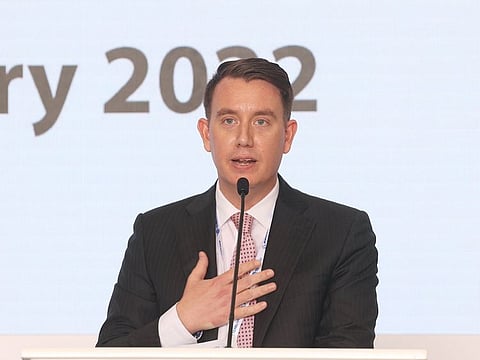Bahrain air cargo operator Texel will not get ‘over-eager’ with expansion, says CEO
Texel Air CEO George Chisholm says being conservative suits carrier best

Dubai: Bahrain’s Texel Air is taking it one aircraft at a time as freight demand keeps surging amidst the various COVID-19 related disruptions.
“It’s very easy to get caught up in the hype of things - trends can change,” said George Chisholm, CEO, Texel Air. “We have been successful by being on the conservative side - we can look at every opportunity and we’re already talking to potential new customers on the sort of commitments they can find us.”
Texel Air, which provides third-party cargo charter operations recently added a 737-800 Boeing Converted Freighter (BCF) to its fleet, a first for the Middle East. With this, the operator’s fleet has grown to four 737 freighters, with another 737-800BCF on order due for delivery in September. “We’re a capacity provider and just offer our aircraft to customers, be it express or e-commerce or even logistics companies, who may not have their own aviation assets,” said Chisholm. “Buying an aircraft is not a light decision – it involves a lot of financial considerations and right now we feel the risk of adding to the fleet is manageable for us as a company.”
Sea freight
The CEO said although the current bottlenecks in marine trade had created a preference for air cargo, this will not be a permanent shift. “Aircraft are great to move things quickly, but it’s not always the most efficient way to move heavy items,” he added. “Sea freight is better for bulky goods.”
Prior to the pandemic, around 80 per cent of global trade by volume and over 70 per cent of global trade by value were carried by sea and handled by ports worldwide. “There’s going to be continued growth and it is no secret that COVID-19 has advanced e-commerce dramatically,” he added.
Not taking debt
Texel Air will not be not relying too much on debt to make aircraft purchases and expand operations. “We have financial support and we are not leveraging heavily – it’s very easy for us to get over-eager and expand too quickly.” The cargo carrier has also been leasing out its aircraft to airlines looking to expand their cargo presence as passenger operations continue to face challenges. “We do that under the ACMI (aircraft, crew, maintenance and insurance) model and what that means is we provide aircraft at a per-hour rate,” said Chisholm.
Airlines are relying on cargo more than ever before, with Emirates airline and Etihad signing agreements to retrofit some of their existing aircraft with cargo capabilities. Global air cargo demand in 2021, measured in cargo tonne-kilometers (CTKs), was up 6.9 per cent compared to 2019. “Air cargo had a stellar year in 2021,” said Willie Walsh, IATA’s Director-General.
“For many airlines, it provided a vital source of revenue as passenger demand remained in the doldrums due to COVID-19 travel restrictions. Growth opportunities however were lost due to the pressures of labor shortages and constraints across the logistics system. Overall, economic conditions do point towards a strong 2022”



